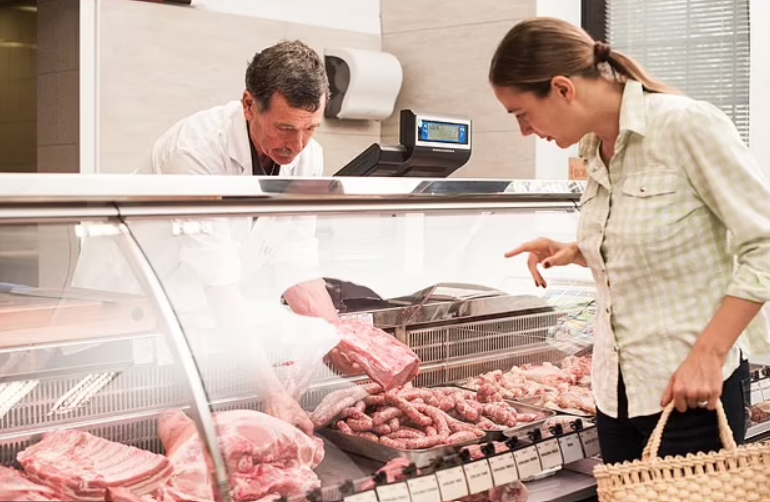Stay-at-home Britain: Retail sales stuttered up in January thanks to skint families shunning restaurants to cook cheaper meals at home instead_Nhy
Hard-pressed Britons tightened their belts last month with retail sales growing only because more people decided to have dinner at home instead of eating out.
Sales volumes jumped 1.7 per cent, according to official figures, higher than analyst predictions of just 0.3 per cent growth and the first increase in four months after a dismal autumn.
The rise was driven by a sharp uptick in food sales, which jumped by the highest amount since the start of Covid-19 lockdowns in March 2020.
The Office for National Statistics said food sales surged 5.6 per cent, as supermarkets plus specialists like butchers and bakers reported strong trading, driven by households eating more meals at home.
The figures may be seen as another blow for the UK’s struggling hospitality industry, which has warned of a catastrophic impact from Labour’s Budget move to increase National Insurance contributions (NICs) for employers.
And elsewhere trading was slower at clothes sellers and other non-food retailers, as sales fell by 1.3 per cent during the month.
ONS senior statistician Hannah Finselbach said: ‘Retail sales rebounded strongly in January following four months of consecutive falls.
‘However, clothing shops and household goods stores had less of a successful month with retailers reporting lacklustre sales due to weak consumer confidence.

The Office for National Statistics said food sales surged 5.6 per cent, as supermarkets plus specialists like butchers and bakers reported strong trading, driven by households eating more meals at home.

The Wealth Club’s Charlie Huggins added: ‘The large increase in food sales is clearly a positive for supermarkets, but it may be a worrying sign for other parts of the economy.’
‘Looking at the broader picture, retail sales have decreased across the three-month period and are below pre-pandemic levels.’
The Wealth Club’s Charlie Huggins added: ‘The large increase in food sales is clearly a positive for supermarkets, but it may be a worrying sign for other parts of the economy.
‘More people eating at home is especially bad news for restaurants, pubs and bars. These sectors are in dire need of footfall, with their costs set to rise significantly in April following the Autumn Budget.
‘The decline in clothing sales – the worst performing category in January – is also a worry. Clothing is one of the first things consumers cut back on when they are feeling the pinch.
‘Overall, aside from the major supermarkets, few retailers will cheer these figures.’
Soaring inflation and sluggish growth under Labour have sparked fears of a new era of ‘stagflation’ for the British economy.
On Wednesday it was revealed that the consumer prices index (CPI) rate of inflation had soared to a 10-month high of 3 per cent in January – higher than predicted by economists.
A major driver of infaltion was an increase in private school fees, the ONS said, after Labour slapped VAT on fees as part of their tax-hiking agenda.
More expensive plane fares and spiralling food costs also contributed to higher living costs, according to the ONS.
The latest inflation data is another blow to Chancellor Rachel Reeves, who has faced huge questions over her stewardship of the economy since her controversial Budget last October.
Alice Cowley, of consultancy Accenture, said the retail sales figures were still ‘not the splash retailers will have wished for’.
She said: ‘Consumers have kept a tight grip on their purse strings post-Christmas.’
‘This past three-month period has fallen short of expectations for many, as shoppers increasingly prioritised essentials only in non-food categories and turned to own label food products, weakening margins.’




